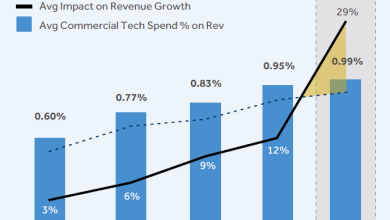
It doesn’t matter whether your business is well-established or an early-stage startup, COVID-19 has made life difficult for everyone. Even those sectors doing well out of the pandemic are struggling to maintain social distancing while scaling up to meet demand.
Unfortunately, even when the pandemic is over, a vaccine found, and lockdown is well-and-truly lifted, the economic impacts will be felt for some time to come. Fewer customers with less money will inevitably lead to a drop in sales.
Yet, economic downturns can help pave the way for new disruptive business ideas, just like the 2008 global financial crisis created the conditions for the sharing economy to rise. Out of the economic devastation, unicorn businesses like Uber and Airbnb rose to offer people cheaper services and new ways of earning income.
The coronavirus has brought its own unique set of challenges. People are having to socially distance, fewer businesses are accepting cash and the movement of people and goods has slowed dramatically. Yet, these challenges have brought significant opportunities for some businesses.
Video conferencing apps, like Zoom, for example, have done very well as almost everyone switched to telecommuting overnight. FinTech businesses also have a significant opportunity to help kick-start the economy by providing new contact-free ways to order and pay for good and services.
So, despite the doom and gloom, some sectors will thrive as a result of the lasting changes brought about by the coronavirus. Capitalising on these opportunities, on the other hand, can be fraught with difficulties. Here are my top tips to help you launch against the backdrop of Covid-19…
Identify the key pain points
To find opportunities within economic downturns you need to identify and address the major pain points that stop normal life from proceeding. After the 2008 financial crisis, people could no longer afford to stay in hotels while others struggled to afford rent. Airbnb then created a two-sided marketplace for people to rent their homes for holiday lets, earning homeowners extra money towards rent while providing a more cost-effective way for people to take a holiday.
FinTech businesses are particularly well-placed to solve challenges for cash-strapped consumers and businesses. Just as technology was used to make services cheaper and easier in 2008, FinTech could help people maintain social distance, go cashless, and improve the speed and efficiency of service.
Take the hospitality industry, for example. It has been one of the worst affected by lockdown as people are restricted from flying, driving long distances, and generally going out. The industry is also notorious for cumbersome legacy systems that are difficult and expensive to update. Now more than ever, venues need systems that offer customers effective and efficient service to help minimise contact and reduce costs.
On the other side of the market, customers are looking for more effective use of technology within venues, with 71% of under 45s saying that technology could be used to improve the dining experience.
Businesses that can identify and solve these pain points will enable hospitality businesses to survive and thrive this difficult period, creating loyal new customers. And gaining the first-mover advantage in a disruptive new market can quickly establish a business as a market leader.
Digital transformation is key
Coronavirus aside, almost every industry has had to face the challenge of digital transformation over the past decade or so. With technology changing so rapidly, it has been hard for many businesses to keep up and there is a lot of fear around implementing digital technology that will be made redundant in a year’s time. Rather than confront these challenges head-on, many business owners have taken a piecemeal approach or ignored the issue altogether.
However, these businesses are quickly being challenged or outright replaced by new disruptive businesses that have integrated the latest technology from the ground up. These lean, agile, tech-enabled businesses can operate more cost-effectively and provide completely new products and services.
Take challenger banks, for example. By developing for mobile-first and creating a framework for new technology integrations, challenger banks make it quick and easy to open an account, deposit money, check balances, send money abroad, and so much more. Meanwhile, traditional banks are still sending paper forms to complete and post back, using photocopies of bills and forms of identification to verify identities.
In a world where printer-ownership is in decline and young people are increasingly concerned about the environment, convincing people to complete a long and arduous process to open a bank account is tricky, especially when other options are much quicker and easier.
Venues are another great example. Apps like Just Eat and Deliveroo have made dining at home much easier, with a plethora of options to choose from and cost-effective home delivery. Physical venues, however, have barely changed their approach since the dawn of civilisation. One of the few changes they have made is to use EPOS systems, yet these legacy systems are now unfit for purpose, creating confusion and reducing efficiency.
For FinTech businesses able to address these challenges and enable the technological transformation of key industries, there is a significant opportunity to help businesses recover while growing rapidly.
Be flexible and move quickly
No one quite knows how to manage a global pandemic of this magnitude. It’s an unprecedented situation that is confounded by populist politics and growing global tensions. As such, the rules change rapidly, with local lockdowns put in place quite suddenly and rules around face-coverings changing almost weekly. If you began developing a solution at the start of lockdown, it may not be fit for purpose by now.
However, if you can be agile and resilient enough to weather the current storm, adapting to the new conditions and continuing to add value, agility and resilience will be in your company’s DNA and serve you well for years to come. An incredible 50% of Fortune 500 businesses got their start in the midst of a recession, yet there have been far fewer recession years than non-recession years.
Find your focus, your goal, and work towards it quickly and flexibly. If something doesn’t work, drop it. If new rules or conditions require you to change your approach, then change your approach. Do whatever you need to do to adapt to market conditions and you’ll emerge from the crisis more adaptable, resilient and with a strong market proposition.
Harness the financial power of the crowd
It is very slow and difficult to grow without funding, especially as a FinTech business. If you can’t gain a significant chunk or the market quite quickly, someone bigger will come along and copy your approach. Your value to the market relies on your speed and efficiency.
Unfortunately, despite the potential for growth during a downturn, institutional investors are often nervous and will wait for clear signs of recovery before investing in riskier startups. They also spend a lot of their time shoring up existing investments to ensure that their current portfolio doesn’t lose too much value, giving them little time to evaluate new opportunities.
Smaller investors, Angels and VCs, on the other hand, have potentially more time given they may be furloughed or simply unable to get much done with their other investments. Equity crowdfunding, especially through EIS-approved rounds, is also much less risky for smaller investors.
As a sector, FinTech does very well when it comes to equity crowdfunding. Banking consolidation app, Curve, recently raised a whopping £4m in just a few minutes while market intelligence platform, Pynk, raised more than £500k via Seedrs in just a few days of going live to the public.
Equity crowdfunding also brings hundreds of potential new customers and brand ambassadors to your platform, as investors become loyal and supportive fans. Any business emerging from a recession with hundreds if not thousands of loyal supporters and customers stand to quickly gain the trust of further investors and customers, helping your business grow rapidly.
As the old Chinese proverb says: in every crisis lies opportunity. While the economic impact of the coronavirus pandemic is likely to create significant challenges for individuals and businesses, FinTech startups able to solve these challenges will be in an excellent position to aid recovery and emerge as market leaders.



